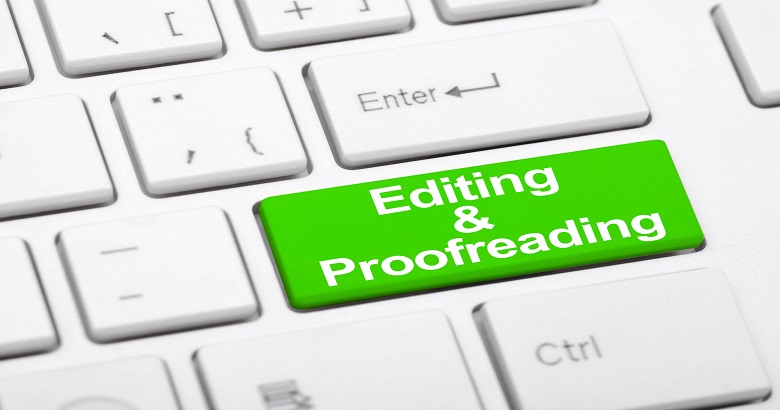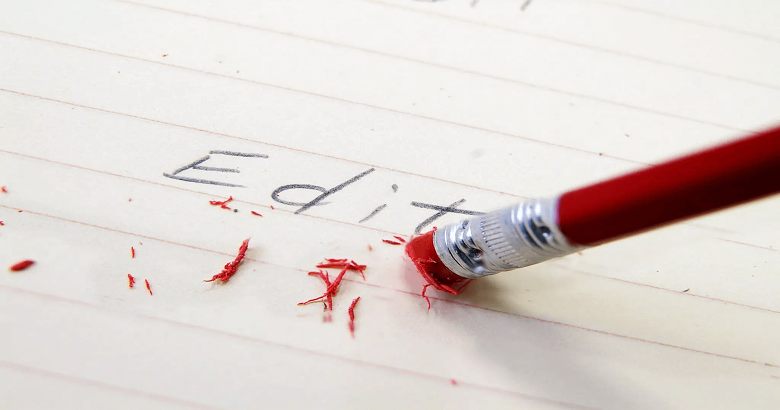When someone discusses editing or editors, the first thing that comes to your mind is;
Dollar signs. Big, fat ones. – We get it!
Why?
Editing is expensive. Editors are pricey. They can exhaust you completely—especially if you’re searching for line edits for a 200k manuscript.
However, editing is also necessary. Without another set of eyes reviewing your work, whether it is two pages or 800 pages long, you risk having a poorly written manuscript that you end up revising fifty times. If you don’t self-publish, your unedited first draft may never be picked up by an agency or published by a firm. Even if you self-publish, there will be a slew of nasty reviews pointing out how many mistakes they discovered or how many sentences they had to reread because they didn’t make sense.
So, for all aspiring authors out there, how do you edit for free? How do you edit without losing more than 1000 bucks?

You will be pleased to know! There are many free and simple types of book editing and proofreading your manuscript! Granted, these solutions cannot replace a super-professional, quirky, and expensive editor. Most editors have been taught to edit and have years of experience; naturally, they know what they’re doing. However, if you do comprehensive proofreading and edits by yourself after squiggling down your fiction or non-fiction literary creations – you can undoubtedly conjure a well-polished final product!
Furthermore, these strategies are most effective when used simultaneously. Doing only one or the other isn’t as efficient as combining them all for maximum editing! Editing is imperative for success, period!
Self-Edit
This is when things can get a bit tricky. Self-editing is not to be taken lightly, nor is it a one-time thing. It’s a time-consuming and effort-intensive process. However, if you’re prepared to put in the effort, you can easily edit your story on your own!
One of the best tips for self-editing is to begin by revising while writing. If you write when you’re half sleepy at midnight, it never hurts to read back over the previous scene you wrote when you’re thinking clearly! If you tweak the narrative or change any character detail in the middle of the book, fix it rather than going forward and forgetting. If you write quickly, be sure to edit once you finish. If you write slowly, take the time to check your punctuation and make sure your sentences are clear.
Once that is complete, go through multiple rounds of editing.
Among different types of book editing, developmental editing is fundamental for refining a manuscript’s structure, narrative flow, and overall coherence. It involves rearranging chapters, removing or revising scenes, adding scenes, omitting characters, introducing new subplots, and so on. As you write, keep track of your chapters, scenes, characters, themes, and subplots so that you know what to add or discard.
Another one that comes under types of book editing is line editing, which consists of rephrasing sentences, removing paragraphs, clarifying ideas, adding dialogue tags and action beats, and so on. It is recommended to wait for a month or two before beginning this round—it helps to grow your writing so that you can improve your prior prose!
Here is the last one of all the types of book editing: proofreading (or copyediting), which is the process of skimming through a document to identify and correct typos, punctuation issues, and grammar mistakes. It’s recommended to proofread your text numerous times, and if you’re self-publishing, make sure you have an actual proof copy to review and correct!
When you read the story in book form, your eyes will notice a lot more—and the same concept applies when you change your font, switch from one writing software to another (for example, Word to Google Docs), and increase the spacing between paragraphs. A slight shift in your perception can have a huge effect!
These three precise rounds of editing cover everything you’ll need to go over and make self-editing far easier and more successful than simply reading through it all at once!
Ask a Friend or Relative
Asking a friend or a relative can benefit you as they give you an extra pair of eyes! If you ask a friend or family member who is a writer or reader, studies writing, or teaches it (or is a grammatical troll in their spare time), you’ll likely get some good editing advice! You can even switch your novels with your fellow writers, so they will be line-editing your manuscripts while you line-edit their novels!
Do not expect them to do everything. You are still likely to edit your book and even have one or two other individuals read it. Personal ideas or preferences (grammatical or otherwise) might get in the way. Therefore, having a third set of eyes to provide feedback is always helpful!
Use Editing Software
Grammarly, Hemingway Editor, and After the Deadline are free and quite helpful in proofreading your work! (Grammarly has a mind of its own and is best suited for blog posts, emails, articles, or shorter fiction pieces…but there are many authors who enjoy it.
You cannot expect software to make developmental corrections (what does Grammarly know about worldbuilding and romance?) or to fact-check your historical details…but it can do a good proofread, restructure your phrases, and eliminate passive voice! If you don’t want to download software, Google Docs can also detect grammar errors and speed up the editing process by offering a table of contents and the opportunity to comment/suggest immediately on the page!
On the non-free side, many more editing software/apps exist, such as AutoCrit, WordRake, and SmartEdit.
Call an Expert
Not every edit has to do with grammar, syntax, and punctuation… a lot of it has to do with portrayals, terminology, and factual correctness. So, instead of relying on Google or your own knowledge (no offense to you or Google…you both have a wealth of valuable resources, surely), consider contacting an expert!
Perhaps a friend who speaks Spanish to assist with your Spanish dialogue, your grandfather who experienced the military, your Sunday School teacher who is a nurse…or post a request on social media for sensitivity readers to assist you in portraying PTSD, loss of loved ones, or specific cultures!
If you’re writing about a specific time or place, consult a historian or someone from that area to ensure that you’re depicting your setting as realistically as possible and that all your facts are correct!
Beta-Readers
Beta readers are simply readers who appreciate your work and agree to read your next project before it is released in exchange for input. They are one of the most valuable tools that writers have, especially when the beta readers are fellow writers!
Beta readers can assist a writer in identifying big-picture issues similar to a regular reader (e.g., is this intriguing, does that make sense, do you like this character, is this scene important, etc.) as well as more editing issues such as grammar, sentence structure, pacing, and more!
All you need are three or four readers (or fifteen…though you might want to divide them into groups) and a semi-edited manuscript to share with them! You have to believe this: beta readers provide some of the most honest feedback you can get!
Similarly, a critique group (which is always made up of fellow authors) can assist you in whipping your story into shape from the moment you start writing! Because a critique group works with you throughout your writing journey (or at least the season in which you are a part of said group), they will be available to brainstorm ideas, plot storylines, develop characters, and so on, making your novel even stronger before you call for betas at the end!
So, how can you get free editing and proofreading? You self-edit, consult with a friend, use editing tools, contact an expert, and invest in beta readers and a critique group! You are sure to succeed with this super squad of editing methods!
FAQ’s – Frequently Asked Questions
-
Is it possible to find free editing services for my book?
While free editing options exist, they often come with limitations. Look for platforms offering community-based feedback or consider joining writing groups for peer reviews. Remember, comprehensive types of book editing may require professional services.
-
How can I determine the appropriate type of book editing for my manuscript?
Evaluate your manuscript’s needs: Developmental editing focuses on structure, line editing refines writing, and proofreading assures accuracy. Determine which levels of editing are necessary based on your objectives and budget.
-
Are there any reputable sources offering free book editing?
Some platforms offer limited free trials or occasional promotions. Keep an eye on writing communities, where authors share resources and sometimes volunteer to edit each other’s work. However, for comprehensive types of book editing, investing in professional services is often advisable.
-
Can I trust free editing tools available online?
Free online editing tools are effective for quick grammar and spelling checks, offering convenience and cost savings. While they may not match the in-depth understanding of human editors, they’re invaluable for polishing drafts. They empower writers to refine their work independently and save money on basic corrections. However, for comprehensive revisions and feedback across all types of books, professional editors remain unmatched.
-
What alternatives exist if I can’t afford professional editing services?
Explore self-editing techniques and utilize beta readers or writing critique groups for feedback. Some authors also barter skills or services with other writers for editing assistance. While professional editing offers comprehensive refinement across all types of book editing, these alternatives can still enhance your manuscript on a budget.



